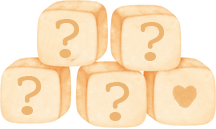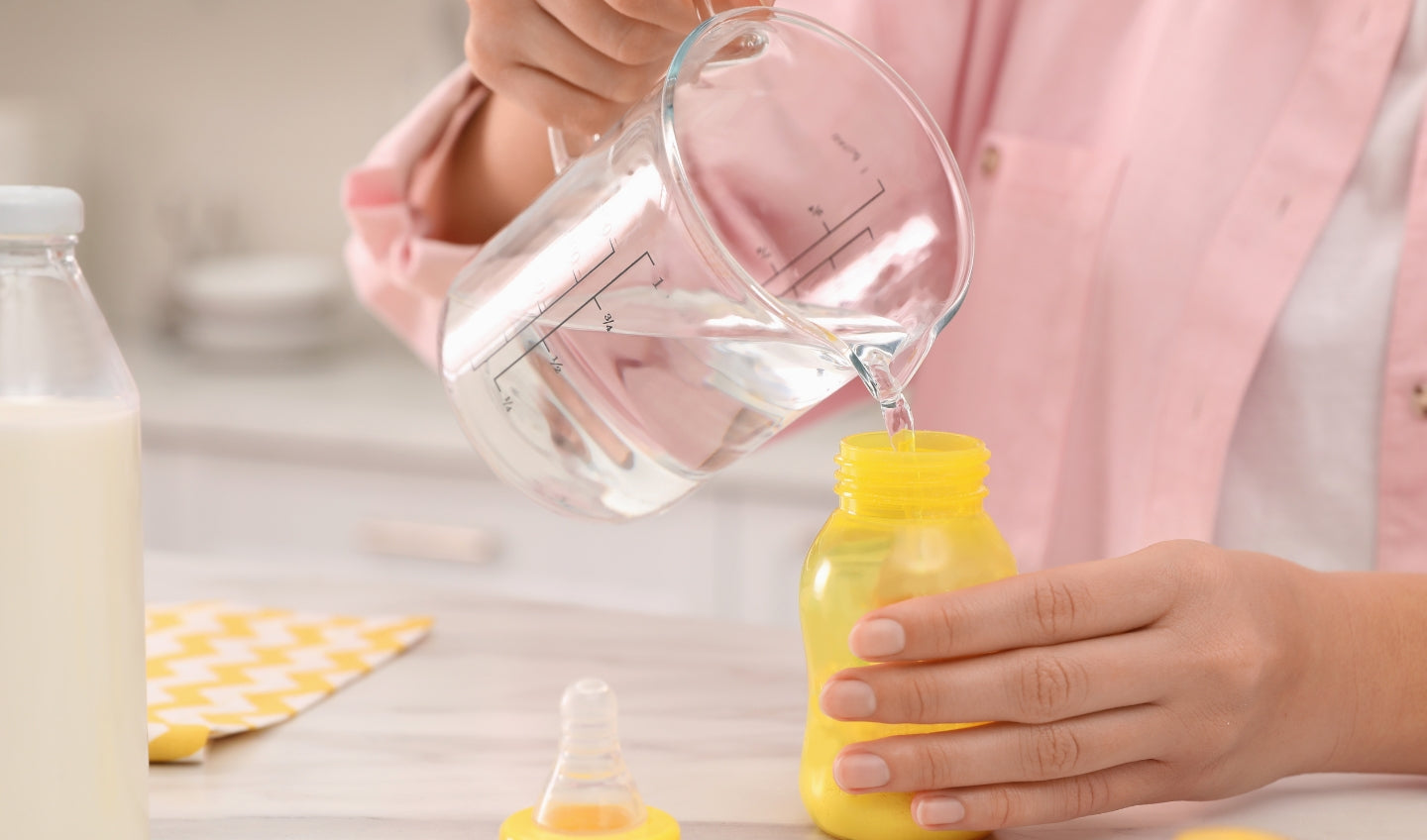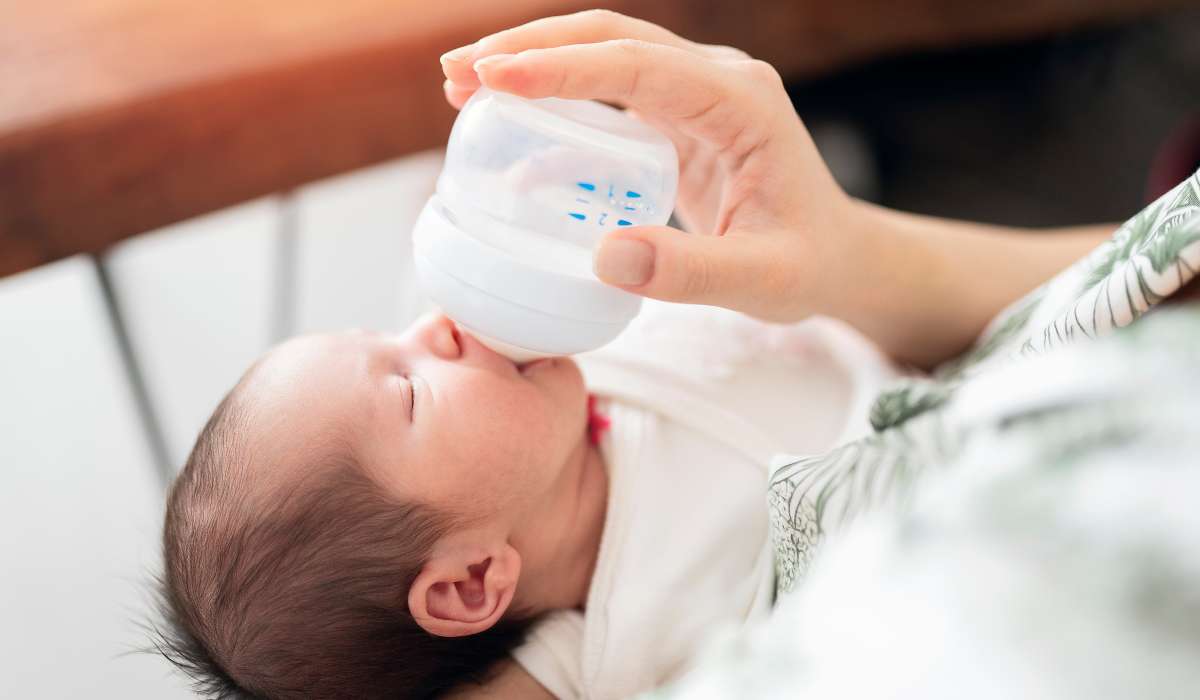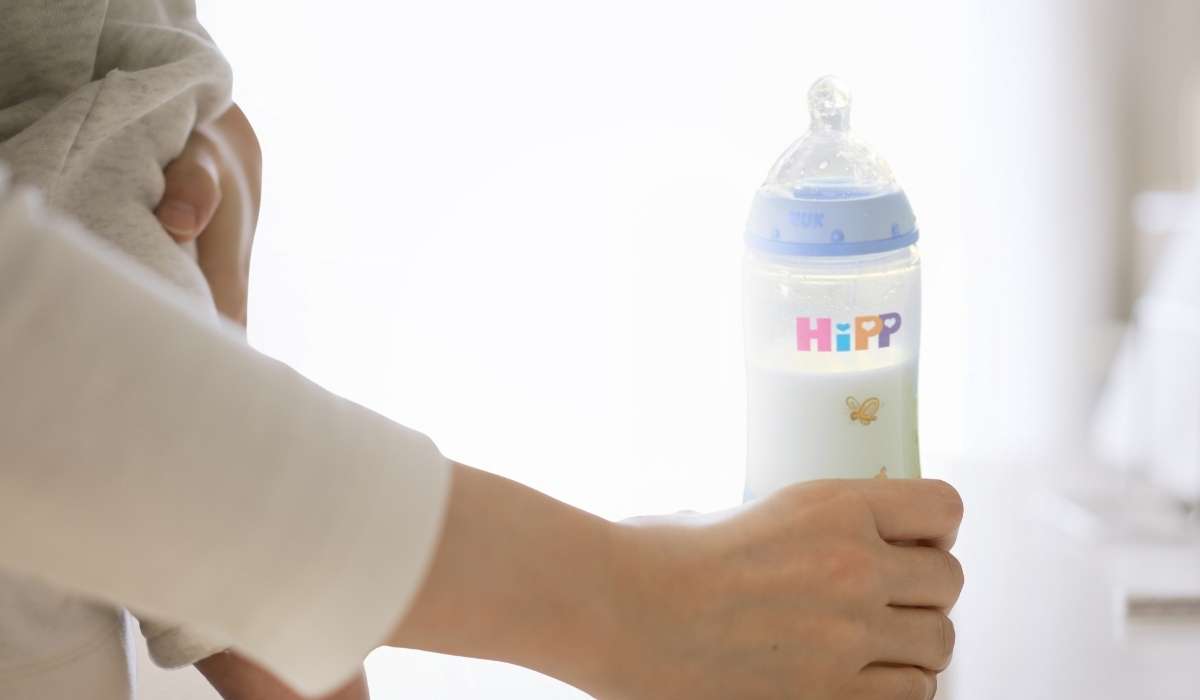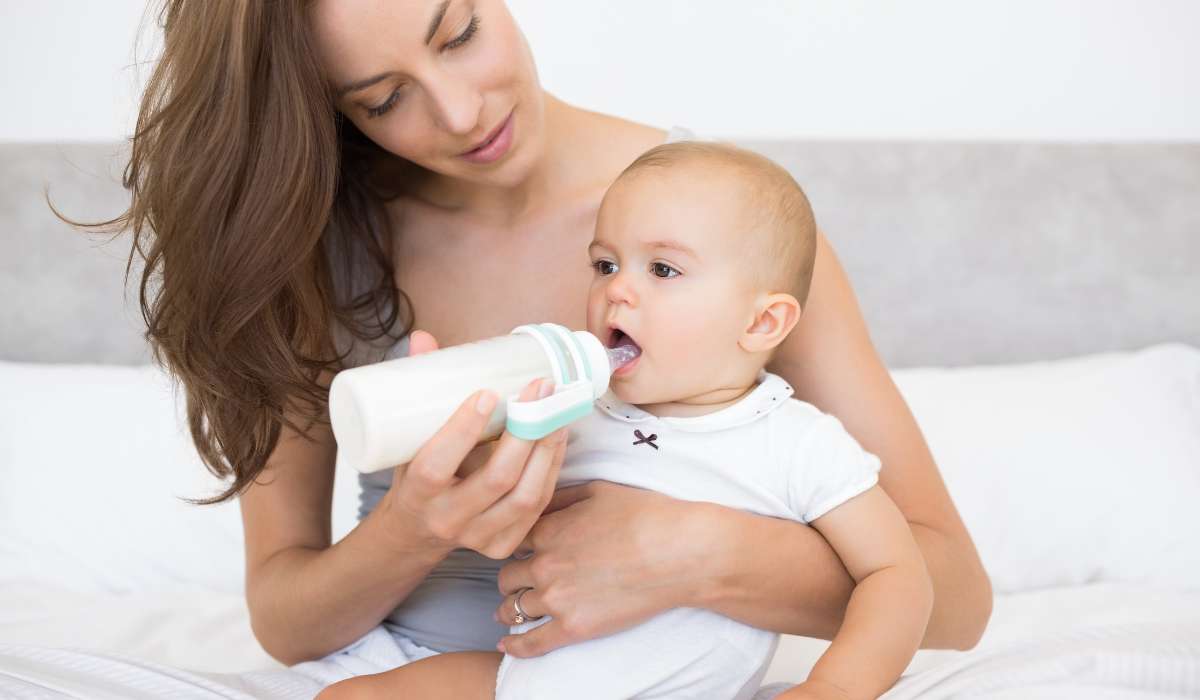Feeding your baby formula comes with many considerations. Whether you prefer a quality powder or concentrated liquid formula mixing it with the right water is an essential step.
So the question is: what's the best type of water for my baby's formula? Today, we will answer this question by comparing different water sources, weighing their pros and cons, and teaching you how to safely prepare baby formula.
Contents
What is the Best Water for Infant Formula: Types and Their Pros and Cons
There are several types of water you can use to prepare infant formula. Naturally, it can be hard to choose among them, especially with so much contradictory information online. It's wise to compare different water sources for formula and their pros and cons. So, let's take a closer look at them!

Tap Water
The biggest advantage of using tap water for formula is convenience. After all, it's right there in your kitchen. That being said, tap water isn't always the safest option. Your tap water supply might be contaminated depending on where you live or how old your plumbing is.
The water may contain lead, nitrates, bacteria, etc. It might also be high in fluoride (anything more than 0.7 mg/L is considered unhealthy for infants). That's why it's always a good idea to contact your local water company and inquire about water safety in your area. You can even get your tap water tested for additional assurance!
Now, bear in mind that even if your tap water is safe, you should still boil the water before mixing it with liquid or powder formula for added protection.
But unfortunately, boiling won't remove certain water components like nitrates. In this case, even a mechanical filter can't always remove the nitrates from the tap water. Thus, you might have to use bottled water instead.
Filtered Water
There are different types of filters designed to remove certain contaminants. They include chemicals, hard minerals, and in some cases, nitrates. Some filters may even help when there's too much fluoride in your tap water.
It can be a good idea to test the tap water in your home to help you pick the most suitable filtration option! Also, keep in mind that filtered drinking water isn't always 100% free from bacteria. Thus, it's safest to boil the water before you mix infant formula, even if it has gone through a filter.
Another detail many people tend to forget is filter replacement. Your baby's safety and well-being will depend on the water quality. Thus, it is crucial to change your filters on time.
Each model has a specific timeframe when it's the most effective, so make sure to check the replacement instructions after purchasing. It also wouldn't hurt to buy several spare filters to ensure you always have clean water for making formula!
Distilled Water
The distillation process is when water is boiled to a point where it turns into steam and condenses back into liquid water. It is effective for removing heavy metals, bacteria, and chemicals, making distilled water a great solution for baby formula. But keep in mind that distilled water still needs to be boiled before mixing it with formula powder.
Bottled Water
When it comes to choosing bottled water for your baby, it's important to consider the different types available. These include mineral, spring, purified, deionized, and demineralized water. To ensure the safety of your baby, it is recommended to select bottled water that is specifically made for babies and has a low mineral content.
It's crucial to avoid using mineral water or bottled water with high mineral content for your baby. This is because the elevated levels of minerals can potentially harm your baby's kidneys. Opting for bottled water designed for babies with low mineral content is the safest choice to protect your baby's health.
Using bottled water can come in handy when travelling or simply being in a hurry. However, you should keep in mind that it can be quite pricy. Plus, buying bottled water for formula preparation results in a lot of plastic waste.
When preparing infant formula, it is generally safe to use ordinary cold tap water that has been boiled for one minute or as directed on the formula label.
Some bottled water companies offer water specifically for infants and formula mixing, which must meet the same standards as tap water set by the Environmental Protection Agency and notably, baby water is notsterile.
Remember that tap water, filtered water, distilled water, and bottled water should allbe boiled for one minute before mixing with infant formula to ensure safety.
Boiled Water
Regardless of what kind of water you use to prepare your little one's formula, boiling water is a necessary step. Boiling water is an effective way to kill any bacteria that might be present in the water. It can also help you retain minerals while making the water safer for your baby's formula.
It's best to bring your drinking water to a boil and let it simmer for 1-2 minutes. Additionally, be careful with hot water and let it cool down for around 30 minutes after boiling.
It's important to be aware that boiling tap water will help you kill bacteria and reduce chlorine, but it won't be of much use when it comes to chemicals, nitrates, and lead. Boiling doesn't work for overly fluoridated water, either.
Factors to Consider When Choosing What Water to Use for Formula
Choosing the safest water for baby formula is an important process. But it doesn't have to be a complicated one. To make things easier, consider the following aspects before making your choice:

-
What does your baby's pediatrician say? A medical expert's opinion should be your number one guiding factor.
-
Is your local water supply safe? If you have drinking water from the tap, you can use it to mix formula; however, it's good to boil the water first. And if your local water is not safe or contains too much fluoride, you might want to use bottled water instead.
-
Does your baby have specific needs? For instance, it's not recommended to use tap water for babies with compromised immunity, even if you boil it first.
-
How much money are you willing to spend? Let's face it: bottled water is pricy. So, if your tap water is safe, you can save a lot of money by avoiding bottled water.
How to Safely Prepare Powdered Formula with Different Water Sources

Firstly and most importantly, you must ensure your water is safe for your baby. You should also use a sterilized, clean bottle.
Next, you should read the instructions on the formula container and follow them to a tee, as using the incorrect ratio of formula powder to water can affect the taste and nutritional value of the baby formula.
If your baby prefers warm formula, you can use warm water to prepare the formula. Alternatively, you can combine the powder with cool water and keep the bottle in hot water (or under the tap) for a couple of minutes.
Make sure you swirl the mixed formula before feeding your baby to make sure the temperature is consistent throughout the bottle, and give it a test on your wrist before feeding it to your little one.
Frequently Asked Questions
-
Can I switch between different water sources for my baby's formula?
Yes, as long as they all are safe. For instance, you can use tap water and switch to low-fluoride bottled water occasionally to control your baby's fluoride intake.
-
How do I know if my tap water is safe for my baby?
You can either get your tap water tested or contact the local water company to inquire how the water is cleaned and what it may contain.
-
Is it necessary to boil water before using it for formula?
In the majority of cases, yes. You don't have to boil distilled water, but all other types should be boiled and cooled down before making infant formula. Always follow the instructions for your baby's formula.
-
What are the main factors to consider when choosing water for my baby's formula?
You should consider your local water source's safety, your baby's needs (e.g. whether they have a weaker immune system or not), convenience, and your budget.
Wrapping Up: Making The Best Choice for Your Baby's Prepared Formula
When it comes to finding the perfect water for your baby's formula, it's important to consider their specific needs and prioritize their safety.
Don't forget to consult with a pediatrician for personalized advice and the best solutions tailored to your little one's needs. They'll guide you every step of the way.
Remember, don't stress too much! With your baby's well-being at the forefront of your mind (which we know it is), you'll make the right choices with confidence.
Breast milk is the best source of nutrition for babies. Before altering your baby's diet or feeding routine, consult your healthcare provider for personalized recommendations. The information in this article is strictly for informational purposes and is not a substitute for medical advice.
